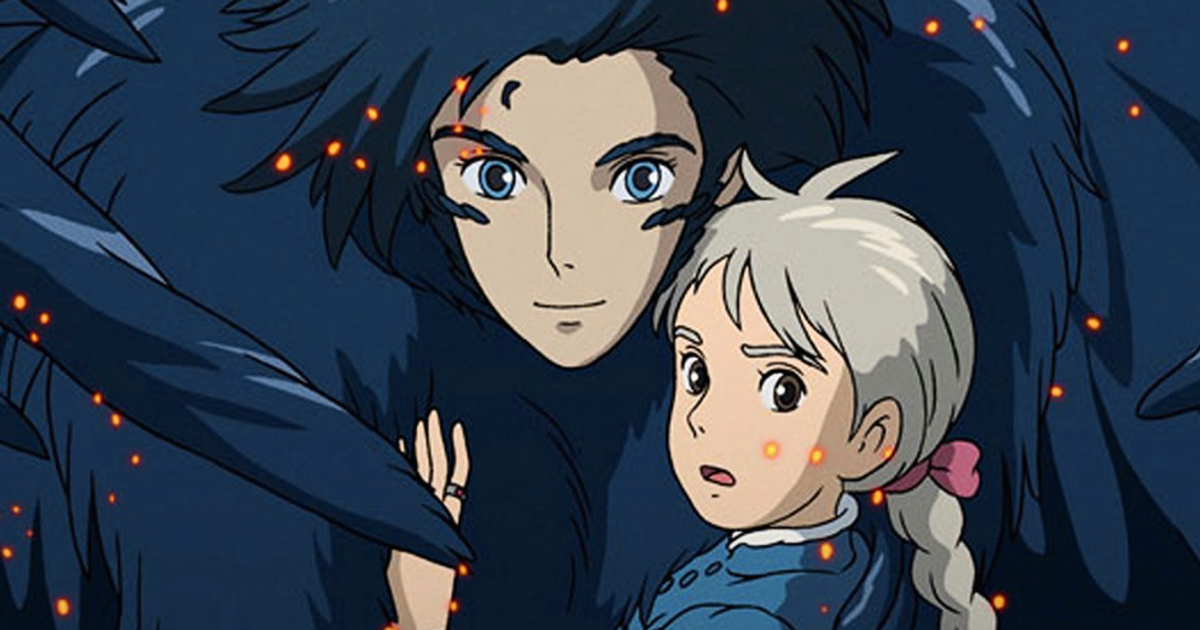Why is there a war in the Howl's Moving Castle movie? As the film is a loose adaptation of the source material, its violent elements might come off as a surprise.
Howl's Moving Castle might be less prominent than, say, Spirited Away, as anime movies go, but it's still a magical and iconic Ghibli movie. But did you know that it's based on a beloved children's book by Diana Wynne Jones?
For those who read the book before coming into the movie, some elements might seem a bit perplexing, including the war that sets the tone of the film - making it darker than its source material.
Is There A War in the Howl's Moving Castle Book?
Unlike the Howl's Moving Castle film, Dianna Wynne Jones' 1986 book of the same name does not, in fact, feature a war.
In the source material, Howl turns out to be Howell Jenkins, a Welsh man from our own world, who became a wizard and entered Sophie's magical world later on.
His character remains consistent in that he's a secretly good-hearted, but initially self-absorbed and lazy young man who spreads nasty rumors about himself to avoid work and responsibility.
In the book, Howl does end up playing a meaningful role with implications for the entire kingdom, but a war is not among the plights he tries to evade.
Why Is There a War in the Howl's Moving Castle Movie?
Plot-wise, the war in Howl's Moving Castle likely broke due to the disappearance of Prince Justin, who turns out to be the true identity of Turnip Head, the scarecrow.
The assumption is that the war began because the Prince's family believed that he had been kidnapped by the neighboring kingdom, but this justification is only given fleetingly and it's easy to miss at first watch.
In the book, the Prince is also missing, but the event does not cause a war, leading us to the conclusion that this was a conscious addition in the film.
To complicate matters further, the war is not even the main focus, as the story of Howl and Sophie is a much more personal and small-scale tale.
Unlike the case with other Ghibli films such as Princess Mononoke, for instance, the perspectives of those who play key roles in this war are not the main focus here, at least not until Howl's actual involvement is discovered.
Howl's Moving Castle portrays war through its victims. Something similar, though much more prominent and heart-breaking, was achieved in the earlier Ghibli film Grave for the Fireflies.
Howl's Moving Castle isn't as shocking as the aforementioned historical anime as we don't see the main characters dying tragically, but the bombings and destruction give a clear anti-war message.
The Howl's Moving Castle movie is linked to the overall implicit message and tone of Miyazaki's work.
As Miyazaki grew up during WWII, his experiences and pacifism made their way into his films.
One of the reasons Howl's Moving Castle is considered by some to be a little chaotic and unfocused is that the war in this case feels more like a part of the background.
While this was not entirely clear at the time of the 2004 film's release, it is now understood that the strong movie-specific, anti-war themes of Howl's Moving Castle have been influenced by the creator's opinions about the Iraq War.
In a 2005 interview discussing his feelings regarding the Oscar won by his film Spirited Away Miyazaki said:
"Actually, [the US] had just started the war against Iraq, and I had a great deal of rage about that. So I felt some hesitation about the award. In fact, I had just started to make "Howl's Moving Castle," so the film is profoundly affected by the war in Iraq."
Related: My Neighbor Totoro Ending Explained
In fact, Miyazaki believed that Howl's Moving Castle would not be well-received in America, particularly because of its strong pacifist message as the war in the movie is portrayed as a senseless act with no good reason behind it.
Against Miyazaki's expectations, the film did very well, but, hopefully, the legendary filmmaker succeeded in communicating his discomfort and strong criticism against war as well.
Explore new topics and discover content that's right for you!
Anime






